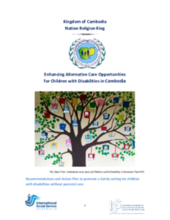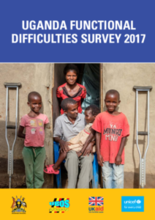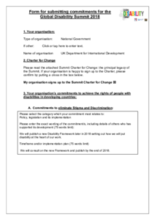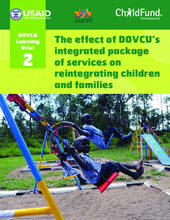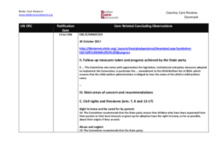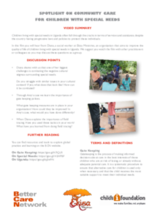Displaying 261 - 270 of 494
This report presents a needs assessment which provides a summary of the situation of children with disabilities who are living in residential care institutions and in communities in Cambodia and proposes seven key recommendations and relevant concrete actions for the short, medium and long term to improve the quality of care of children with disabilities living in institutions and to ensure that they have better access to basic services and are living in a protective environment.
The sections in this report provide an analysis of Uganda’s disability policy and legislative framework and how it is implemented, and emphasizes the need for sound research for development, including statistics.
In this form, the UK Department for International Development (DFID) outlines its commitments for the Global Disability Summit 2018, including its new policy position on children and young people with disabilities in institutions.
This volume is an effort to highlight best practices for children without parental care.
This learning brief analyzes quantitative data from the second of the “Deinstitutionalization of Orphans and Vulnerable Children in Uganda” (DOVCU) project’s stated objectives: examining the extent to which DOVCU project interventions decrease vulnerabilities for reintegrating children and their families.
This country care review includes the care related Concluding Observations adopted by the Committee on the Rights of Persons with Disabilities and the Committee on the Right of the Child at their recent examinations of Denmark's report.
This chapter discusses findings from a qualitative study that investigated the experiences of disabled children living in out-of-home care in th UK.
This video from UNICEF Rwanda shows some of the moving stories of children and their new families who have been brought together through the TMM initiative, which reintegrates children who have been living in institutions into families and the community.
In this video, social worker Diana Nyakarungi describes how Ekisa Ministries in Jinja, Uganda supports parents to care for their children with special needs within the community.
This video series from Better Care Network, in partnership with Child's i Foundation, highlights promising practices in children's care in Uganda.

